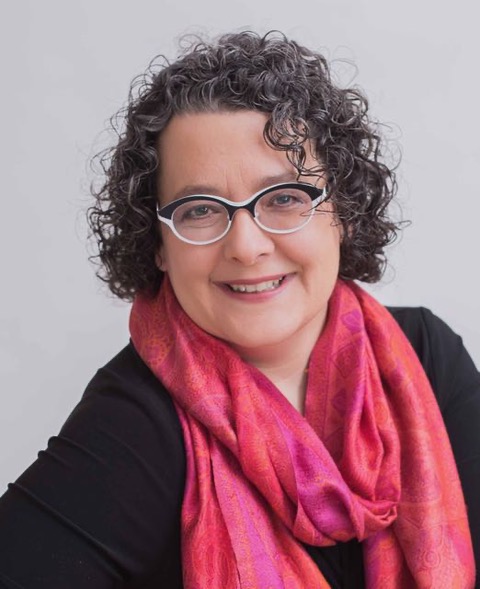...
How would you like to be a Guest Blogger for KMI? Email us at: info@kminstitute.org and let us know your topic(s)!
Radical KM and the ISO KM Standard 30401
The Knowledge Management Systems—Requirements, ISO 30401 (shortened to, ISO KM Standard) was published in 2018 and provides guidelines for organizations to develop a management system to promote and enable value-creation through knowledge. As such, it offers definitions and a high-level framework and process for this purpose. It is meant to be used in any organization, and in any industry or sector, which makes it a good place to start when explaining how Radical KM fits within and enhances traditional KM.
There are four areas I will focus on: the definition of KM, the spectrum of knowledge, the knowledge development lifecycle, and knowledge management culture.
Starting with the ISO KM definition, which defines KM as a discipline focused on the ways organizations create and use knowledge that and says KM is a holistic approach to improving learning and effectiveness. The ISO Standard notes that knowledge is created by people and is intangible and complex. Radical KM supports and agrees with this definition in that what is added in Radical KM is creativity, which is about helping organizations and people create knowledge and to thrive in our VUCA (volatile, uncertain, complex, ambiguous) world. Radical KM supports breaking down silos and looking at things differently, questioning the status quo. Radical KM is definitely a holistic approach to doing that in that because it includes creativity, not just analytics and processes. It supports people because creativity is a human characteristic, helping people be who they are and facilitating people bringing their whole selves to work to be both creative and analytical.
Moving on from the definition of KM, the ISO KM Standard also references a spectrum of knowledge that starts from knowledge that is a tacit to the point that the individual isn't aware of knowing it, ranging all the way to the other end where it's documented, codified, and/or structured. Radical KM plays a role in the tacit knowledge end of the spectrum because it helps access it and make it explicit or at least move it along the continuum towards being more tacit allowing people to make new connections and putting the pieces they have together in a new or different way. Radical KM plays less of a role in codified and structured knowledge, although it can have a role there too, depending on what the purpose is.
Looking at the knowledge development lifecycle that ISO sets out, starting from knowledge development where knowledge is created, moving through consolidation, retaining, sharing, adopting, applying, and ultimately retiring. Radical KM plays a role most clearly in the development through the use of creative methods to inspire and create new knowledge, however, it can also play a role in sharing, adopting, and applying knowledge as it asks people to be curious and open-minded and to adopt through learning and decision making. Radical KM through the utilization of creativity thus makes the knowledge development lifecycle more holistic and complete.
Finally, the area where Radical KM potentially has the most significant role is KM Culture. There are many components of KM Culture, elaborated in the ISO KM standard including helping people be more open, more curious, feeling more empowered, helping them develop autonomy, and curiosity and being open to collaboration as well as helping them learn continuously and recognize the value of knowledge. The art-based interventions envisioned in Radical KM play a role in all these behaviours and helps build trust and respect which is also key to having a KM Culture.
In conclusion, through the addition of creativity, specifically arts-based interventions, Radical KM makes traditional knowledge management a balanced, integrated, sustainable whole, ready to meet the challenges of the 21st century.
Note: a more expansive version of this discussion will be published in the June 2022 edition of Business Information Review.
~~~
 Stephanie Barnes is a knowledge management consultant at Entelechy working with clients in a variety of sectors. In her consulting practice she focuses on aligning people, process, and technology to not only help organisations be more efficient and effective with what they know, but to be more innovative and creative, too. Stephanie has been bringing knowledge management success to organisations for more than 20 years. Visit: https://www.realisation-of-potential.com/
Stephanie Barnes is a knowledge management consultant at Entelechy working with clients in a variety of sectors. In her consulting practice she focuses on aligning people, process, and technology to not only help organisations be more efficient and effective with what they know, but to be more innovative and creative, too. Stephanie has been bringing knowledge management success to organisations for more than 20 years. Visit: https://www.realisation-of-potential.com/
Stephanie's next Creative KM Certification class meets Oct 17, 19, 24, 26 (half-days, 9-1 EST). Details here...
Archives
- September 2023 (3)
- August 2023 (6)
- July 2023 (4)
- June 2023 (4)
- May 2023 (2)
- April 2023 (5)
- March 2023 (6)
- February 2023 (4)
- January 2023 (7)
- December 2022 (3)
Pages
RECENT POSTS
...












 ...
...
